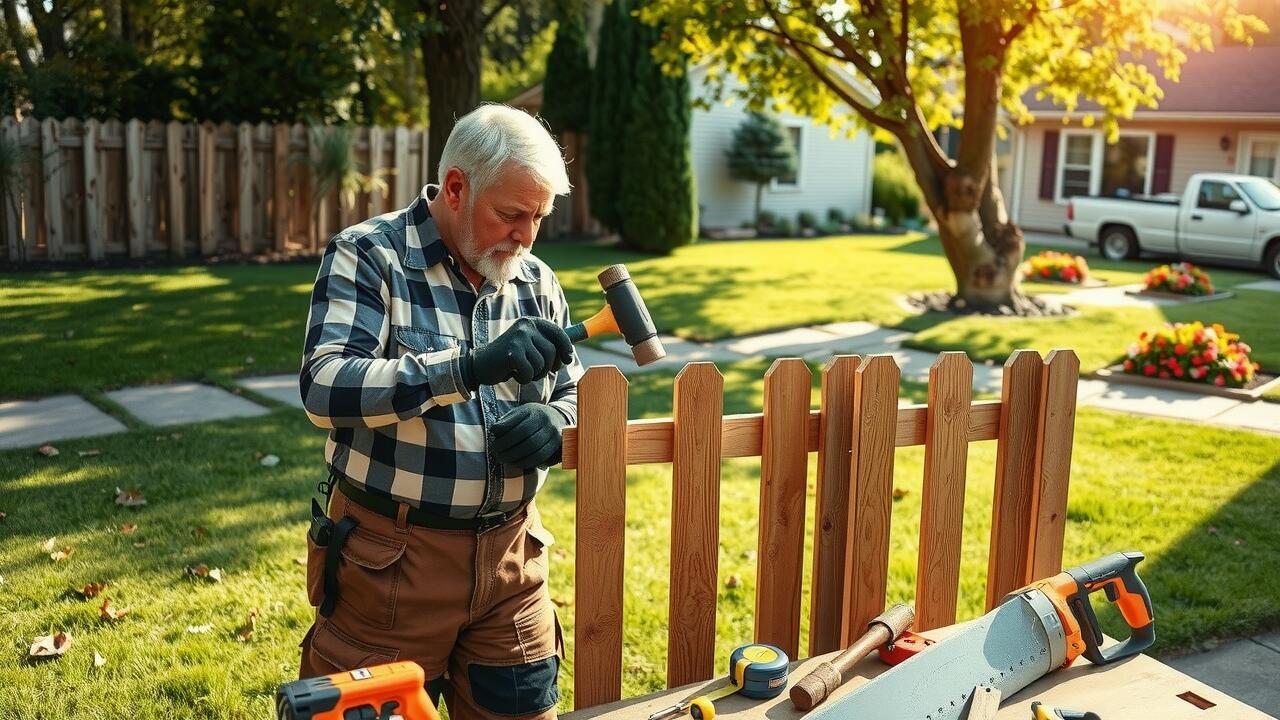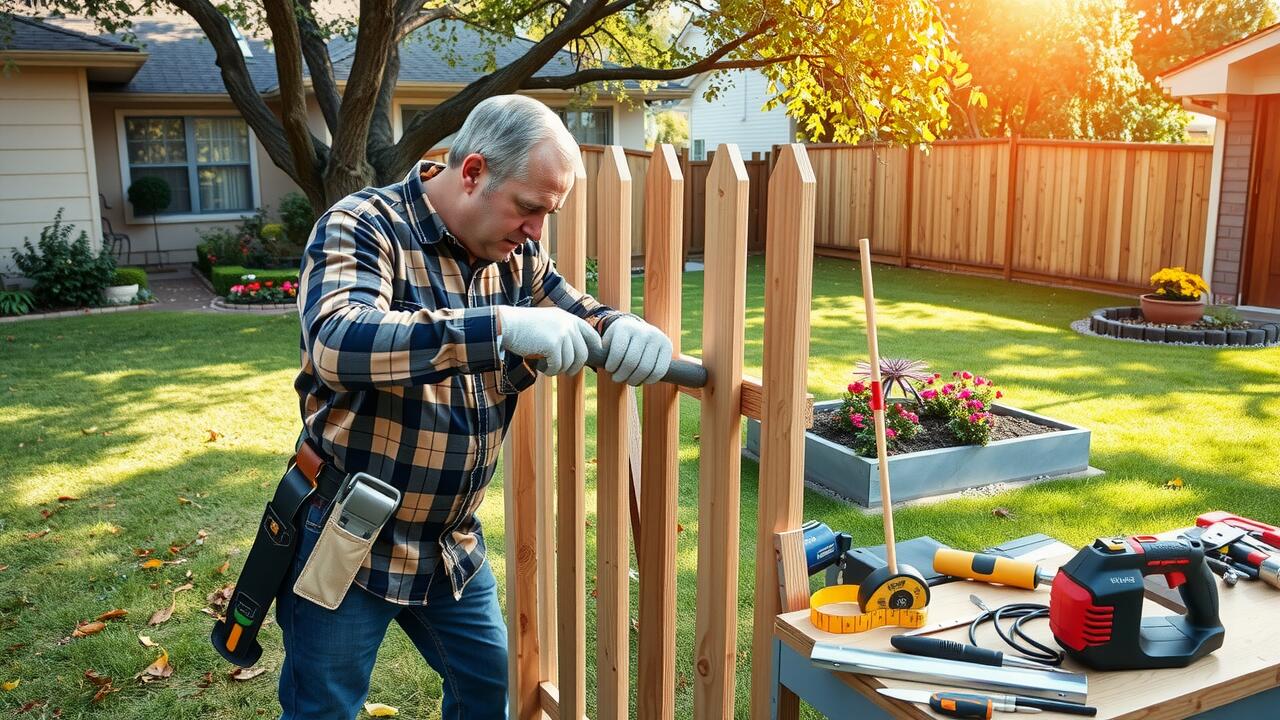
Table Of Contents
How Experience Affects Pricing
The level of experience a fence contractor has can significantly influence their hourly rate. Established professionals often charge more due to their extensive background in various fencing projects. They typically possess a strong understanding of local regulations, material options, and the intricacies of installation techniques. Their seasoned skills enable them to complete tasks efficiently, which can translate into cost savings for the homeowner in the long run.
On the other hand, less experienced contractors may offer lower rates to attract clients. While this can be tempting, it may come with risks. Inadequate knowledge about fence repair or installation techniques can lead to mistakes that ultimately increase the overall cost of the project. Homeowners should weigh the potential expenses of fixing errors against the initial savings presented by hiring less experienced workers.
The Value of Expertise in Installation
Expertise in fence installation significantly influences the overall cost and quality of the project. Experienced contractors bring invaluable skills to the table, ensuring that the installation is completed efficiently and correctly. This knowledge also extends to fence repair, where seasoned professionals can identify underlying issues that might not be visible to less experienced workers. An expert can not only prevent common mistakes but also offer solutions that save time and money in the long run.
The understanding of various materials and techniques allows seasoned installers to make informed decisions. Their familiarity with local codes and regulations can prevent complications during the project. When it comes to fence repair, a contractor with years of experience will likely possess the insight needed to restore a fence while maintaining its structural integrity. Ultimately, hiring a skilled professional could result in lower overall costs due to durable installations and fewer repairs needed down the line.
Seasonal Variations in Pricing
Seasonal variations in pricing can significantly impact the costs associated with hiring a fence contractor. Demand for fencing projects tends to increase during the warmer months when homeowners are eager to enhance their outdoor spaces. As spring and summer approach, contractors may raise their hourly rates due to heightened demand and limited availability. Conversely, the fall and winter months often see a decline in both projects and pricing, providing a potential opportunity for cost savings on both fence installation and fence repair.
Additionally, the timing of a project can affect the overall budget. During periods of moderate weather, contractors may be more willing to negotiate prices. This flexibility can benefit homeowners planning a fence installation or fence repair before adverse weather conditions set in. Understanding these seasonal trends enables homeowners to make informed decisions regarding the best time to schedule their fencing needs while potentially minimizing expenses.
Ideal Times for Fencing Projects
Timing can significantly impact the cost and efficiency of fencing projects. Most contractors experience peak seasons during spring and summer when demand is high due to favorable weather conditions. These periods often see an increase in pricing due to the high volume of requests. Homeowners looking for new installations or fence repair may find that planning their projects for the fall or winter can yield more competitive rates and quicker service.
Weather considerations also play a crucial role in determining the best times for fencing work. Wet or extremely cold conditions can hinder installation, leading to potential delays. For those who need fence repair, scheduling projects during milder seasons reduces weather-related interruptions, allowing for smoother operations. Planning ahead and consulting with professionals can help homeowners select the optimal timing for their specific needs.
The Role of Project Complexity
Project complexity plays a significant role in determining the overall cost of fencing services. Simple fence installations usually require less time and fewer materials, thus translating to lower labor costs. In contrast, advanced installations demand more expertise and a more significant investment in resources, which can result in increased hourly rates charged by contractors. The amount of planning and customization needed for projects can also influence pricing, as contractors may spend additional time assessing the site and determining the best approach to meet client needs.
Fence repair adds another layer of complexity to pricing. When a fence requires fixing rather than a simple installation, the contractor must evaluate existing conditions and identify the necessary repairs. This evaluation process can involve unforeseen challenges, such as dealing with damaged posts or weathered materials. Such complexities can lead to variations in labor costs, as contractors will need to factor in their experience with similar repairs and the time required to restore the fence to its original condition.
Simple vs. Advanced Installations
The complexity of a fencing project significantly impacts the overall cost, with simple installations typically requiring less labor and fewer materials. Basic fence types, such as chain-link or wood panel fences, can usually be installed quickly and efficiently. This efficiency often translates into lower hourly rates for contractors. Simple installations also tend to require minimal preparation and fewer specialized tools.
In contrast, advanced installations involve more intricate designs or specialized materials, leading to higher costs. These projects may include features such as automated gates, decorative elements, or unique layouts tailored to specific landscapes. Fence repair can add further complexity, especially if existing structures require significant changes or reinforcement. This complexity generally results in increased labor time and expertise, which ultimately raises the hourly rate charged by contractors.
FAQS
How much do fence contractors typically charge per hour?
The hourly rate for fence contractors can vary widely, but on average, you can expect to pay between $50 to $100 per hour, depending on the contractor’s experience and location.
Does the type of fencing material affect the hourly rate?
Yes, the type of fencing material can influence the overall cost of the project, including labor. More complex materials or specialty installations may require more skilled labor, thus increasing hourly rates.
Are there any additional costs besides the hourly rate?
Yes, in addition to hourly labor costs, you may also incur expenses for materials, permits, and any additional services such as removal of old fencing or site preparation.
How can I find a reputable fence contractor?
To find a reputable fence contractor, consider seeking recommendations from friends or family, checking online reviews, and verifying credentials and insurance. It’s also wise to obtain multiple quotes before making a decision.
Is it more cost-effective to hire a contractor for a DIY fence installation?
While hiring a contractor may seem more expensive upfront, their expertise can save you time and effort, potentially preventing costly mistakes. For complex projects, it’s often more cost-effective to hire a professional.

